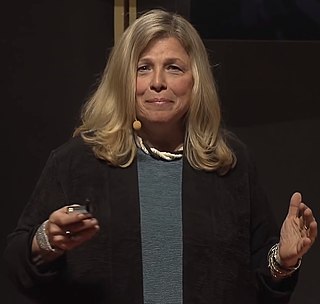A Quote by Fernando Pessoa
We all have two lives: The true, the one we dreamed of in childhood And go on dreaming of as adults in a substratum of mist; the false, the one we love when we live with others, the practical, the useful, the one we end up by being put in a coffin.
Related Quotes
I dreamed I spoke in another's language, I dreamed I lived in another's skin, I dreamed I was my own beloved, I dreamed I was a tiger's kin. I dreamed that Eden lived inside me, And when I breathed a garden came, I dreamed I knew all of Creation, I dreamed I knew the Creator's name. I dreamed--and this dream was the finest-- That all I dreamed was real and true, And we would live in joy forever, You in me, and me in you.
Your false self is always that which is passing away. Your true self doesn't go up or down, it's constant - it's a rock. Once you learn how to live there, what others say about you, your failures or successes - these don't send you on a roller coaster ride down or up. It's really the only way to peace. There's no other way to be peaceful except in the true self.
I'd say that it's often true that people are attracted to each other immediately and everything lines up, but it's just as true for those relationships to end up a disaster. But people don't think of that as false love-at-first-sight. They highlight the examples that worked rather than the ones that failed.
We have hitherto considered only two possibilities: that the received opinion may be false, and some other opinion, consequently, true; or that, the received opinion being true, a conflict with the opposite error is essential to a clear apprehension and deep feeling of its truth. But there is a commoner case than either of these; when the conflicting doctrines, instead of being one true and the other false, share the truth between them.
Many expressions in the New Testament come naturally to the lips of all Protestants, and it furnishes the most pregnant and practical texts. There is no harmless dreaming, no wise speculation in it, but everywhere a substratum of good sense. It never reflects, but it repents. There is no poetry in it, we may say, nothing regarded in the light of beauty merely, but moral truth is its object. All mortals are convicted by its conscience.
To be rich, to be famous? do these profit a year hence, when other names sound louder than yours, when you lie hidden away under ground, along with the idle titles engraven on your coffin? But only true love lives after you, follows your memory with secret blessings or pervades you, and intercedes for you. Non omnis moriar, if, dying, I yet live in a tender heart or two; nor am lost and hopeless, living, if a sainted departed soul still loves and prays for me.
As soon as one knows one is going to die, childhood is over.... So one can be grown up at seven. Then, I believe most human beings forget what they have understood, recover another sort of childhood that can last all their lives. It is not a true childhood but a kind of forgetting. Desires and anxieties are there, preventing you from having access to the essential truth.

































